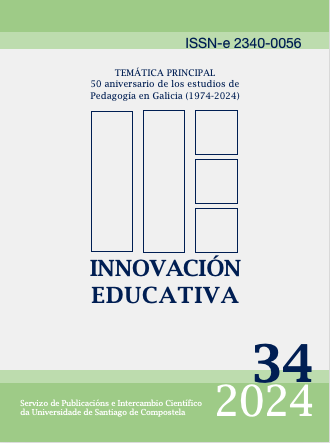
Innovación Educativa is an annually published journal founded in 1991. Its basic aim is to promote the debate and to stimulate the reflection about innovative initiatives from any area of education (pedagogy, didactics, school organisation, and so on), as well as to favour the performance and spreading of those initiatives among the professionals of teaching, the researchers and students and those who, in a general way, are concerned with questions of a pedagogic and didactic nature. Innovación Educativa is indexed in ERIH PLUS, IRESIE, ESCI, Fuente Académica Premier, TOC Premier, ISOC, ULRICH, DIALNET, REDIB and is present at 45.28% of the Spanish universities offering the corresponding studies (24/53).
In the RESH index, Innovación Educativa occupies, in the period 2005-2009, position 50 of 202 among Spanish journals in education with most impact. The index that measures the impact is the citation index and, to calculate it, the citations in the main Spanish scientific journals and the citations received at the Web of Science have been taken into account. It is included in 2023 in the Latindex Catalog 2.0 (fulfilling 38 of the 38 possible characteristics).
Innovación Educativa is published in Galician, Spanish, Portuguese and English.




